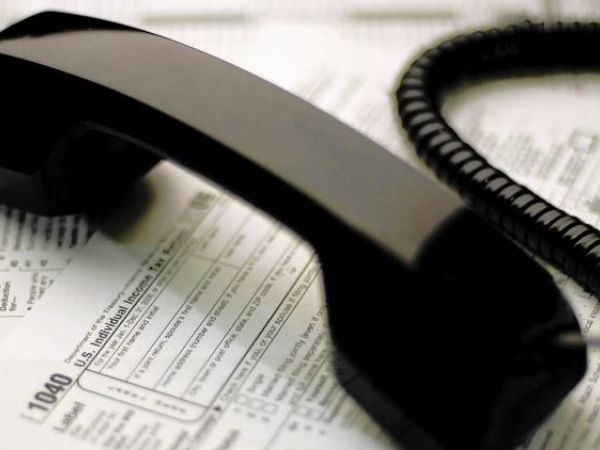Online Security at IRS phone scam finally may be fizzling out

We all should be thankful on this Thanksgiving Day that one of the worst scams to hit the Lehigh Valley, and the nation, finally is on its way to being cooked.
Complaints about the IRS phone scam have dropped significantly in the past month or so. After three years, international detective work and technological advances finally have carved deeply into these turkeys' business.
The scheme isn't completely stuffed away yet, so remain vigilant. But it's certainly not as prevalent as it was.
The relentless calls started in fall 2013. Con artists pose as IRS and U.S. Treasury agents and threaten people with a lawsuit, arrest or grand jury investigation unless they immediately pay supposed tax debts.
The debts aren't real but the callers bully people into paying over the phone, usually with prepaid debit cards and iTunes cards. More than 9,600 people, including some locally, have lost a combined $50 million. A California man lost $136,000 when he was exploited repeatedly over 20 days, according to the U.S. Attorney General's Office.
I heard from hundreds of people who got the calls. Some were scared. Others were confused about whether the calls were legitimate. Many knew they were fraudulent and wanted to know how to stop them or where to report the scoundrels.
Nearly 2 million complaints about the scam have been reported to the Inspector General for Tax Administration. It's also the top scam complaint to the Better Business Bureau.
But it's been a month or more since I've heard any complaints. Reports to the inspector general and the BBB are way down.
That's because some of the people accused of making the calls have been locked up. Early last month, authorities in India raided a call center and charged 70 people with fraud. On Oct. 27, U.S. authorities announced that 56 others had been indicted; some of them in the states, along with five call centers in India.
"We are encouraged that our investigation, which resulted in the announced law enforcement action in late October, has had a significant impact on this criminal activity," inspector general's spokeswoman Karen Kraushaar told me.
At the peak of the scam, more than 30,000 calls were reported to the inspector general in a single week. That was down to about 1,000 in one recent week.
People still are being ripped off, though, and the inspector general recently learned of 40 people who lost money, Kraushaar said.
"It is extremely important that people remain vigilant and remember to hang up on callers who claim to be IRS or Treasury employees and make threatening calls demanding immediate payment," she said.
In about the past month, the Better Business Bureau's Scam Tracker website has received 91 reports of tax fraud, compared to 489 the previous month. While those figures include all types of tax scams, the vast majority are IRS scam calls.
"We are pleased with the drop and are looking forward to the day when we aren't getting any IRS tax scams reported," said Kelsey Owen, communications and public affairs director for the Better Business Bureau office that covers eastern Pennsylvania.
There are variations of these scam calls. Sometimes the callers are men. Sometimes they are women. Some calls are live while others at least start as robocalls. Callers often instruct victims not to tell anyone about what's going on and to remain on their cellphone while they are buying the prepaid cards to pay their supposed debt. The callers try to sound official, sometimes offering badge numbers and case numbers. But their foreign accents often give them away.
In addition to the arrests, technology also played a role in reducing the number of calls getting through.
As I reported in a recent column, a new technique being developed by phone and technology companies to block illegal robocalls stopped a substantial number of these scam calls during a test.
While this is all good news, I fear the fraud could catch a second wind. Schemes as profitable as this often morph into new ones. The Better Business Bureau also warned of that.
"We know from past experience that scammers are opportunists," Emma Fletcher, manager of the BBB's Scam Tracker, said in a news release last month. "Hopefully this crew won't be stealing from anyone again for a long while. But we will be keeping an eye on incoming scam reports so we can alert consumers what the 'next big thing' in scams turns out to be."
The IRS phone scam already was evolving prior to the raid in India. John Miller of Bethlehem Township told me he got several calls in late September from the "Office of Taxation" that followed the same script.
"I guess they gathered that everybody has figured out the IRS game so now they're trying a different name," Miller told me.
If you get an IRS scam call, you can report it to the Treasury Inspector General for Tax Administration (800-366-4484, www.tigta.gov) or the BBB Scam Tracker (www.bbb.org/scamtracker/us).
Protect yourself against scams by reading my previous Watchdog columns at www.mcall.com/watchdog. If you are targeted with a new scam, let me know and I'll warn others.
The Watchdog is published Thursdays and Sundays. Contact me at [email protected], 610-841-2364 or The Morning Call, 101 N. Sixth St., Allentown, PA, 18101. I'm on Twitter @mcwatchdog and Facebook at Morning Call Watchdog.
By using this site you agree to this Privacy Policy. Learn how to clear cookies here
An spléachais mór i Bhaile Átha Cliath i 2024/ce ஜீதா கோபினாத்: எங்கள் பொருளாதார திருமூர்த்தியின் ஆச்சர்யமான பயணம் !!! The Voice Belgique 2024 - Dein Weg zum musikalischen Ruhm !!! 8xbetenterprises Đừng bỏ qua cách hóa giải hướng nhà Họa Hại từ chuyên gia CabinPro Mercury Capital Advisory Asquith Plumbing Group professional services: 24 Hour Emergency Plumber Mercury Capital Advisors in Singapore Fundraising Roundup Private Equity - Q1 2016